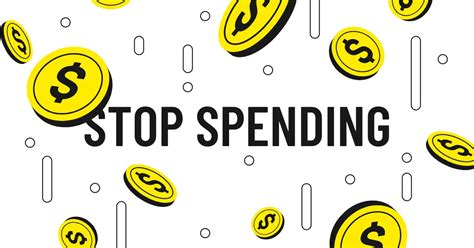Mastering Your Money Mindset
Many of us embark on the journey of setting financial goals, whether it’s saving for a down payment, retirement, or a dream vacation. Yet, the path to these aspirations is often riddled with a common nemesis: impulse spending. Those spontaneous purchases, while seemingly insignificant at the moment, can collectively derail even the most well-intentioned financial plans. The key to overcoming this challenge isn’t just stricter budgeting; it’s a fundamental shift in how we perceive and interact with our money.

Understanding Impulse Spending
Impulse spending is often a response to immediate emotional triggers, clever marketing, or the desire for instant gratification. It bypasses rational thought and long-term consequences, focusing instead on the fleeting pleasure of acquisition. This habit is deeply ingrained in a consumer-driven society, making it a formidable opponent for anyone trying to build wealth or meet specific financial targets.
The problem isn’t just the money spent; it’s the opportunity cost. Every dollar spent impulsively is a dollar not invested, saved, or used to pay down debt, ultimately delaying the realization of your larger financial ambitions. Breaking free requires more than willpower; it demands a re-evaluation of your relationship with money and your future self.

Embracing Your Future Self
The most powerful mindset shift to combat impulse spending is the adoption of a ‘future self’ perspective. Instead of viewing your savings as a restriction on today’s desires, see it as an investment in the well-being and happiness of your future self. When you consider a purchase, ask yourself: “Does this align with the person I want to be and the life I want to have five, ten, or twenty years from now?”
This perspective transforms saving from a deprivation into an act of self-love and strategic planning. It fosters delayed gratification, where the satisfaction of achieving a significant long-term goal outweighs the momentary pleasure of an unplanned purchase. Visualizing your future self enjoying the fruits of your disciplined spending habits today can be an incredibly strong motivator.

Pillars of Intentional Spending
Once you adopt the future self mindset, several practical pillars support intentional spending. Firstly, align your spending with your core values. If financial independence is a core value, an impulse buy of the latest gadget might conflict with it. By consciously connecting purchases to your deepest values, you create a powerful filter against unnecessary spending.
Secondly, practice the ‘pause and reflect’ rule. When you feel the urge to buy something non-essential, implement a waiting period – 24 hours, 48 hours, or even a week. This allows the initial emotional impulse to fade, giving rational thought a chance to intervene. Often, after the waiting period, the desire for the item significantly diminishes or disappears entirely.

Building Sustainable Financial Habits
Beyond mindset, integrating practical habits reinforces this new way of thinking. Regularly tracking your expenses helps you see where your money is actually going, providing concrete data that can either validate your intentional spending or highlight areas for improvement. Automate your savings so a portion of your income goes directly to your financial goals before you even see it. This makes saving a default, rather than an afterthought.
Lastly, celebrate your progress. Acknowledging small wins – resisting an impulse buy, hitting a mini-savings target – reinforces positive behavior and strengthens your commitment to your long-term vision. This journey is about progress, not perfection, and every deliberate choice brings you closer to your financial aspirations.

Your Path to Financial Freedom
Shifting your mindset from immediate gratification to embracing your future self is a transformative step towards financial freedom. It’s about empowering yourself to make conscious choices that serve your long-term goals, rather than falling prey to fleeting impulses. By cultivating intentional spending habits and aligning your actions with your deepest values, you not only avoid impulse spending but also build a robust foundation for lasting financial well-being and peace of mind.




